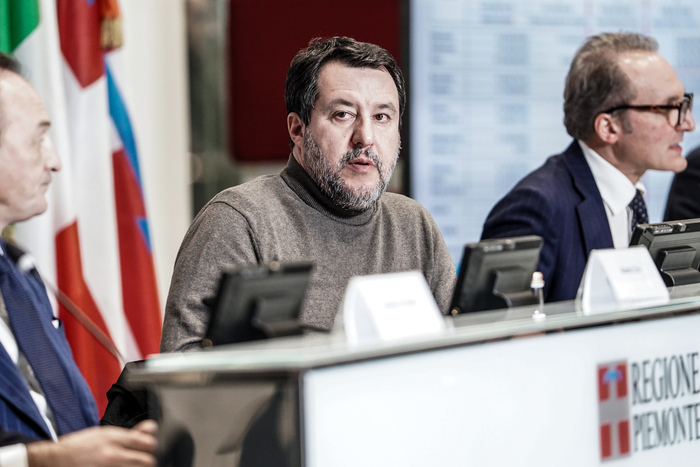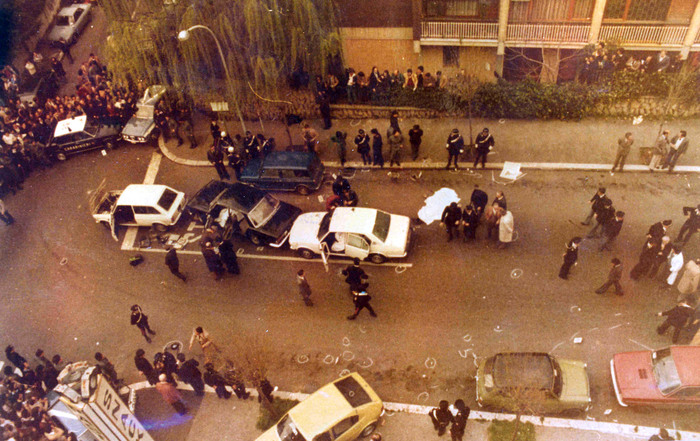The ax fell this Wednesday at dawn, forty years after the fact. Seven Italians, five men and two women, most of them former members of the Red Brigades convicted in the peninsula for acts of terrorism committed in the 1970s and 1980s, were arrested in France. Three others were absent and are currently wanted. During these "years of lead", a myriad of Marxist-Leninist groups injured or killed dozens of magistrates, politicians, journalists, industrialists and police. This decision, made public by the Elysee itself, was greeted with satisfaction on the other side of the Alps, where the news made the headlines.
"The Italian State welcomes the transmission of the files of former brigadists to the judicial authority," said Me William Julié, the lawyer who will represent him in the extradition proceedings to come.
"As indicated by the Elysee, these files all relate to blood crimes committed in Italy as part of terrorist attacks and whose prosecution is not prescribed", further specifies the lawyer, alluding to the " Mitterrand doctrine ”which, in its time, had sealed the fate of these activists - between 300 and 400 - who came to take refuge in France.
The former president then pledged, in a speech delivered in 1985, not to expel those of them who had broken with their past, apart from involvement in a "blood crime".
Read alsoWill France extradite the former Red Brigades?
In practice, all had made their living in France, obtaining residence permits without difficulty, despite repeated requests from Italy to which Paris had never acceded, with rare exceptions. Among them, the Cesare Battisti case, who had managed to take the tangent in Latin America and whose arrest in Bolivia, in January 2019, had revived the debate. In the process, Italy's ratification of the Dublin Treaty, relating to extraditions within the European Union, broke a legal lock. From a list of 200 names initially submitted by Rome, 10 were finally selected according to criteria that the Elysee presents today as conforming to the “Mitterrand doctrine”.
Lawyer for five of the seven people arrested on Wednesday, Me Irène Terrel said she was "outraged" by this decision. “It is France which gave them asylum, the authorities, right and left combined, and not François Mitterrand. "" Since the 1980s, these people have been under the protection of France, they have rebuilt their lives here for thirty years, are installed in full view of everyone, with their children, their grandchildren ... and, in the morning, we come to look for them, forty years after the facts? "
Among his clients arrested on Wednesday, the most famous figure is Marina Petrella.
The 66-year-old ex-member of the Red Brigades was sentenced to life in prison for aggravated murder and her participation in three attacks.
In 2008, President Nicolas Sarkozy opposed his extradition, even though authorized by the courts, because of his state of health.
A legal process that can take months
Proof according to Me Jean-Louis Chalanset that this decision is "eminently political", successive governments interpreting at will a "doctrine" more ambiguous than it appears. His client, Enzo Calvitti, convicted in his absence in Italy for attempted kidnapping and murder of a head of the anti-terrorist police, had, like others, already been arrested in France some thirty years ago, then released… because of the position of François Mitterrand. "The exclusion of crimes of blood is therefore hypocrisy since they were then prosecuted for the same facts!" It's not as if we discovered what they were accused of, or that they had lived in hiding, like illegals. "Enzo Calvitti, 66, worked for a long time as a psychotherapist, before retiring in Paris,where it was picked this Wednesday morning at 6 a.m.
As spectacular as they are, these arrests only start a judicial process that could drag on. By Friday, the seven people arrested will be presented to the public prosecutor's office of the Paris Court of Appeal, before a judge decides whether they will be detained or released under judicial supervision, while the applications are examined. extradition. This could take months, the decision being subject to appeal, in particular before the Court of Cassation. Once enacted in law, extradition must finally be endorsed by the government, with the signing of a specific decree.








